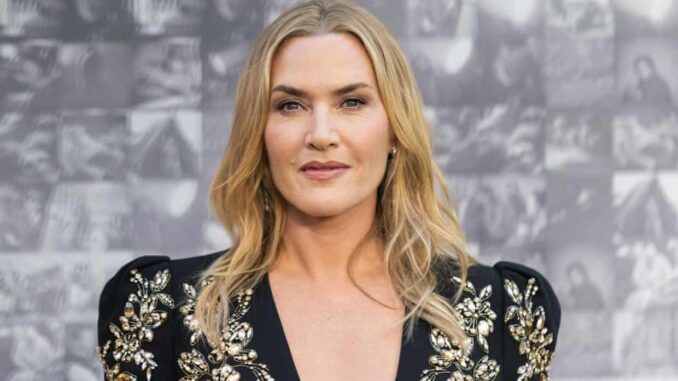
The Unsinkable Truth: Kate Winslet, Body Shaming, and the Lingering Legacy of Titanic
Kate Winslet, a name synonymous with cinematic grace and unwavering authenticity, has never been one to shy away from speaking her mind. So, when she recently revisited the era of "Titanic" and the relentless body shaming she endured, her words resonated with a particular force. She called it "absolutely appalling," a sentiment that not only captures the injustice she faced but also underscores a pervasive issue that continues to plague Hollywood and society at large. Her experiences, while personal and specific to the fervor surrounding a global phenomenon, serve as a stark reminder of the insidious nature of body shaming and its lingering impact on both individuals and our collective perception of beauty.
The late 90s, the era of "Titanic," was a time when cultural narratives, often dictated by the narrow lens of mainstream media, dictated acceptable body types. Winslet, portraying the spirited Rose DeWitt Bukater, found herself thrust into the unforgiving spotlight. Despite her undeniable talent and the film's unprecedented success, the focus, for many, shifted from her performance to her physical appearance. Tabloids and gossip columns dissected her figure, often labeling her "too heavy" or "unattractive" alongside her co-star, the lean and boyish Leonardo DiCaprio. The media frenzy created a toxic environment where her worth, not as an actress, but as a woman, was judged solely on her conformity to unrealistic beauty standards.
Winslet's experience highlights the inherent cruelty of body shaming. It's a form of public humiliation that undermines an individual's self-worth and fuels insecurity. In her case, the pressure to conform, amplified by the global stage, must have been immense. To be dissected and judged based on arbitrary aesthetic ideals, especially at a young age, leaves lasting scars. The emotional toll can be profound, potentially leading to body image issues, eating disorders, and a pervasive sense of self-doubt. It is a form of bullying, cloaked in the guise of "entertainment" or "concern," that inflicts real and lasting damage.
Furthermore, Winslet's reflections on the "Titanic" era bring to light the gendered nature of body shaming. While DiCaprio escaped the same level of scrutiny, Winslet was relentlessly targeted. This disparity underscores the societal expectations placed on women to be constantly beautiful and conform to a narrow definition of perfection. This pressure, fueled by media portrayals and reinforced by societal norms, contributes to a culture where women are constantly judged and compared, often at the expense of their mental and emotional well-being.
The fact that Winslet, decades later, still feels compelled to address this issue speaks volumes about its enduring impact. Her willingness to speak openly about her experiences not only empowers her to reclaim her narrative but also provides a platform for broader conversations about body image, representation, and the need for greater inclusivity in Hollywood and beyond. By sharing her story, she shines a light on the harmful effects of body shaming and encourages a shift towards a more accepting and compassionate society.
While progress has been made in recent years, with greater emphasis on body positivity and diverse representation, the echoes of the past still reverberate. The media landscape remains saturated with images of idealized bodies, perpetuating unrealistic expectations and fueling insecurities. Social media, while offering platforms for self-expression and community building, can also become breeding grounds for comparison and self-criticism.
Kate Winslet's brave condemnation of the body shaming she endured during the "Titanic" era serves as a powerful call to action. It reminds us that words have power, and that the relentless pursuit of unattainable beauty standards can have devastating consequences. By acknowledging the harm caused by these practices and promoting a culture of acceptance and self-love, we can work towards a future where individuals are valued for their talent, their character, and their humanity, not simply for their adherence to superficial ideals. The unsinkable truth is that true beauty lies not in conforming to expectations, but in embracing authenticity and celebrating the diversity of the human form. And in speaking out, Winslet has undoubtedly made the world a more beautiful, and more compassionate, place.